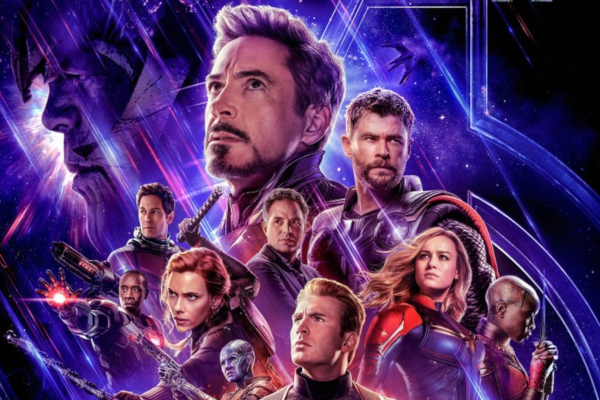WARNING: This article contains plot details for both Avengers: Endgame and Infinity War. I’ve tried to avoid unnecessary spoilers,
The Marvel Cinematic Universe is a cultural phenomenon, never more than at this moment. After twenty-two movies and a combined $20 billion at the worldwide box office, it falls to Avengers: Endgame to provide a suitable payoff to eleven years of storytelling, to eleven years of hype. Dread it, run from it, it’s all anyone can talk about — apart, perhaps, from Game of Thrones.
So far the response has been overwhelming. Endgame’s opening weekend is not yet concluded and already the film has doubled its $300+ million budget (not counting marketing, etc.) Reviews have been, on the whole, glowing. Endgame is even, at the time of writing, number 3 on the IMDb’s Top 250 rankings; just below The Godfather and above The Dark Knight.
Marvel’s corporate overlords at Disney are not, however, infallible, and have, in my opinion, made one minor misstep in their handling of the two part conclusion to this phase of the MCU, Endgame and Infinity War before it. In my humble opinion, they got the names the wrong way round. Avengers: Infinity War should have been called Endgame; Endgame should have been Infinity War.
Does it seem counter-intuitive, perhaps, staring with the endgame? Well, stick with me. Infinity War is, despite its grand title, only the beginning of the end, as, in a move first teased seven years ago at the end of the original Avengers, Thanos, the Mad Titan, the Big Bad of the whole MCU to date, finally arrives to wreak havoc, or rather to bring balance.
One of the criticisms levelled against the film, in certain quarters at least, was that its shocking ending — Thanos succeeding in bringing together all six Infinity Stones and wiping out half the population of the universe — ultimately means very little. Dusting half your cast is all very bold; less so when they all still have films in the pipeline. In fact, paradoxically, their absence from the narrative in Endgame means they’re safe from being killed by any other means. The deaths we do see in Endgame are likely to stick; at least for the time being. Calling the first film Endgame would have at least provided a sense of finality — ‘cause, as far as the characters are concerned, this is it.
And, in the truth, Endgame as we know it is no more the end of the Marvel franchise than the first; even if it does seem like a final goodbye for certain beloved characters. It is, meanwhile, even broader in its scope and ambition; even if half the cast are absent. Compared to the climax proper, which plays like the ultimate splash panel for the current MCU lineup, the battle in Wakanda at the end of Infinity War seems like a mere skirmish.
This is the war we’ve been waiting for, one that spans both space and time. Still, whatever the case may be, it didn’t stop Infinity War from generating the GDP of a small African country. Endgame seems almost uncertain to outstrip that. One thing is certain, though: this isn’t the end for the MCU; not by any means.
Do you think Infinity War and Endgame should have been the other way around? Let us know in the comments section below or send us a Tweet!

